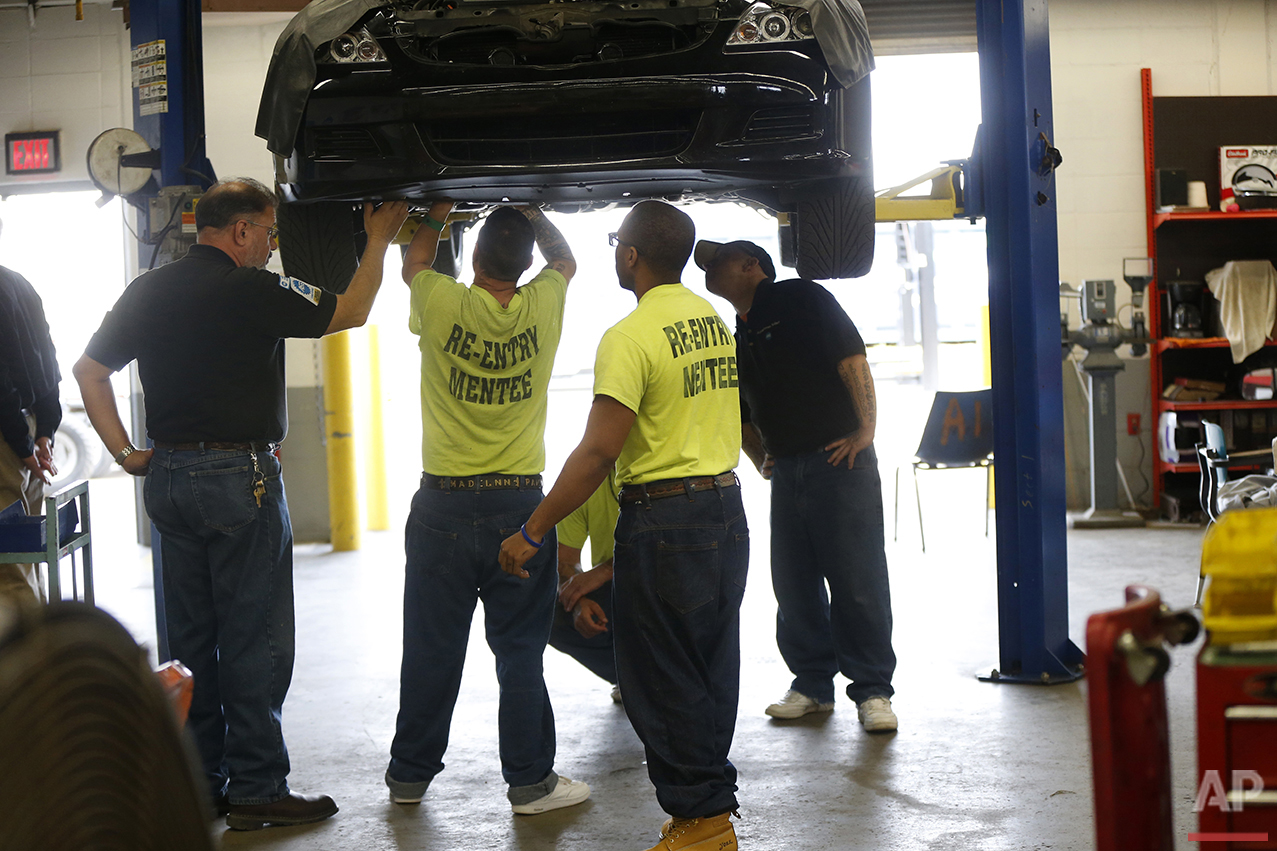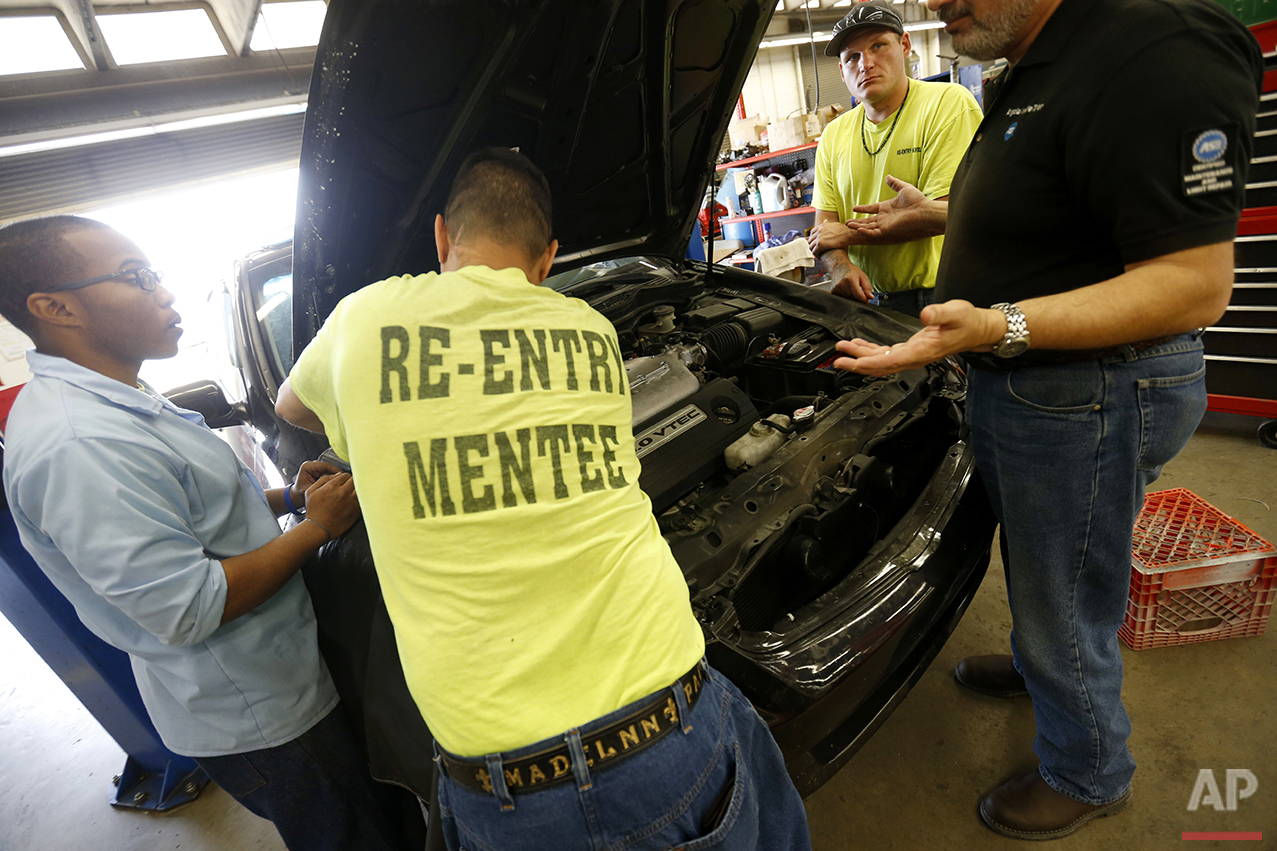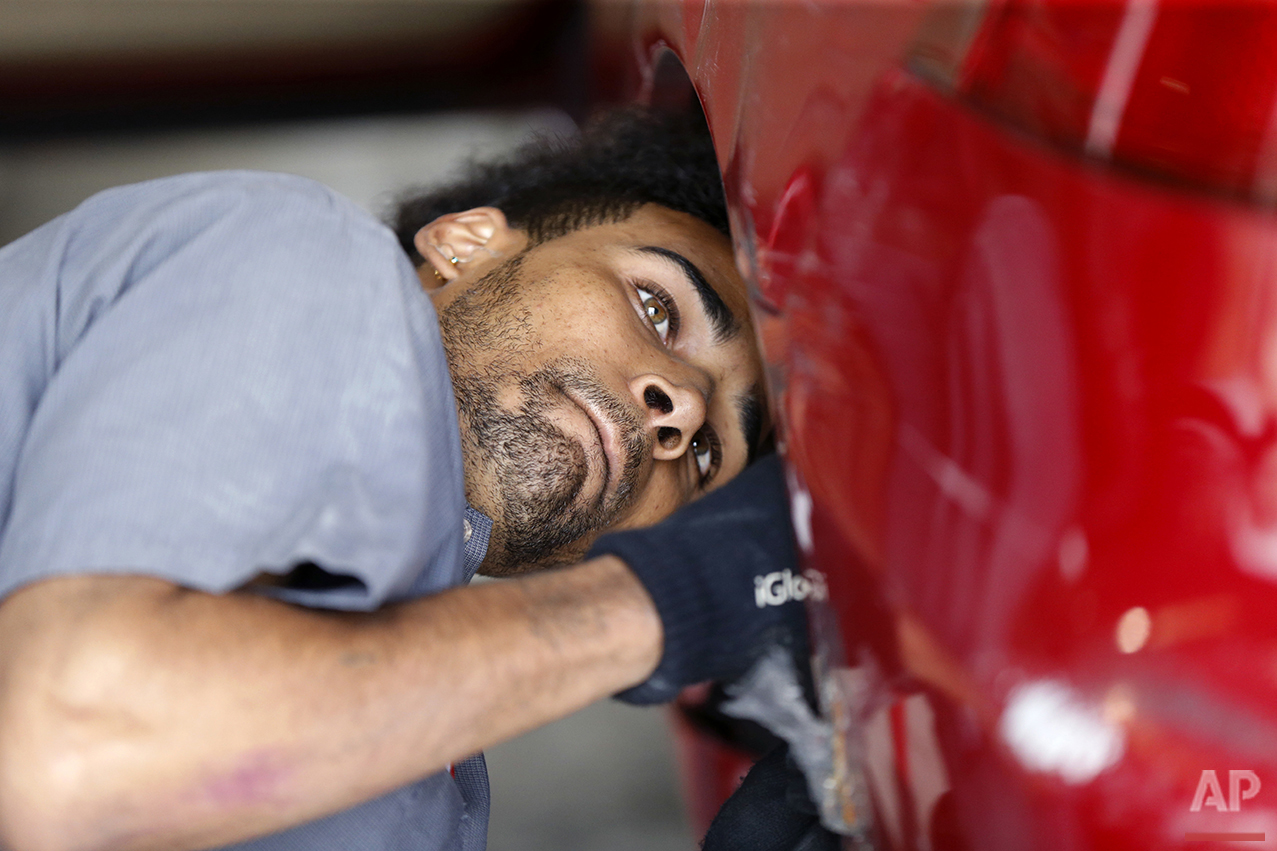"She was very interested in how we do things," Stagg said.
Angola's short-timers share dormitories with their mentors but aren't isolated from some 6,300 other inmates.
"I want them to be exposed to the pressures and the temptations of prison," Stagg said. "They need to be able to learn how to fight those temptations off."
Short-timers get drug treatment and have to have a GED diploma. Stagg said lessons about morals and values are crucial to the program.
"Their main job is to teach them to refocus their life, to change their heart and mind," he said.
Most states employ re-entry programs, drug courts and other specialty courts to reduce recidivism rates. What makes the Angola program unique, experts said, is the mentoring by lifers and the courts' role in selecting and monitoring participants from the beginning to the end of their sentences.
"I haven't seen it operate in the U.S. in this way at all," said David Khey, a criminal justice professor at the University of Louisiana at Lafayette.
Only nine court jurisdictions, including in New Orleans and Baton Rouge, are currently authorized to participate in Angola's program and a smaller companion program at a women's prison. But the state Supreme Court appointed a participating judge to examine how the program could be expanded elsewhere, with Khey's input.
So far, only one of 27 program graduates from one court jurisdiction alone has returned to prison since the first was released in 2013 — what Khey calls a "very promising" rate.
Statewide, approximately 36 percent of Louisiana offenders return to prison within 3 years, state corrections figures show.
Defendants charged with sex offenses or facing sentences longer than 10 years aren't eligible. Program graduates get five years of court-supervised probation once released.
"This is not a free pass for anybody," said Judge Scott Schlegel in greater New Orleans' Jefferson Parish. "If you want to change, we are here to help you succeed."
Montrel Stiebling entered Angola without a high-school degree or a trade after pleading guilty to an attempted firearm possession charge that could have meant a decade behind bars. The 25-year-old earned his GED diploma and passed two Automotive Service Excellence certification tests in prison.
Six months ago, he landed a job at a New Orleans car dealership's body shop.
"I don't think anybody should spend a day up there, but I don't regret it because it helped me out a lot," said Stiebling, who was freed in 2012 but remains on probation.





















